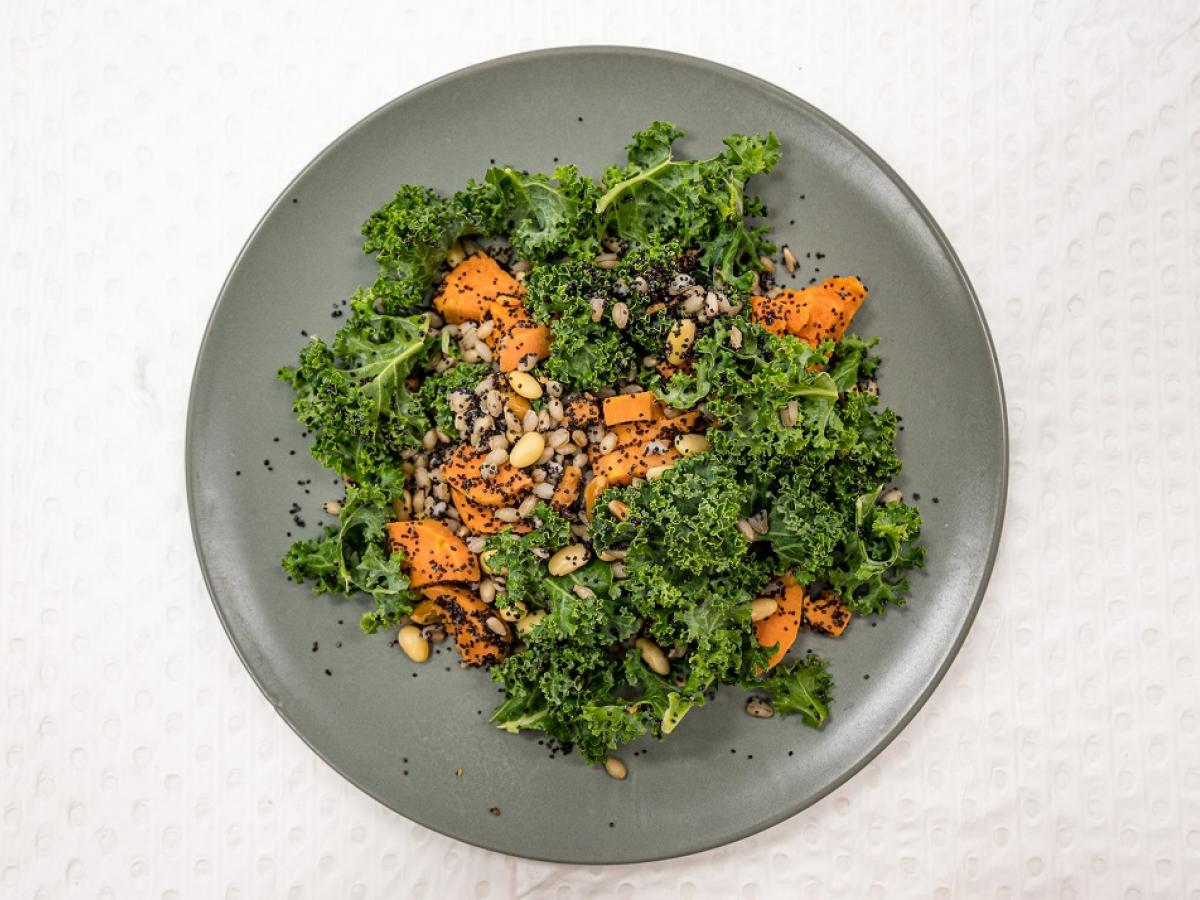Out-of-this-world salad created for astronauts

An international team of scientists has created a salad that contains ingredients that could be grown on spacecraft and provide optimum nutrition for astronauts heading into deep space.
Using daily dietary requirements for astronauts suggested in a NASA study, the research team created a computational model to predict the best combination of plants for a ‘space salad’.
The ‘space salad’ contains carefully measured quantities of soybean, poppy, barley, kale, peanuts, sweet potato and sunflower seeds.
The research is part of a program being run by the University of Adelaide, Australia and University of Nottingham, UK which focuses on astropharmacy, farming and food research.
The University of Adelaide’s Professor Volker Hessel, Research Director of the Andy Thomas Centre for Space Resources, is one of the project leads.
“We have simulated a mix of six to eight crops that deliver all the required nutrients that an astronaut needs, which is different from what people need on Earth,” he said.
“While there are dozens of crops that can fulfil an astronaut’s nutrient requirements, we needed to find those that could pack a punch and deliver the calories needed in smaller portions that could be grown in a small space.”
More than hundred different plants were considered by the team. They selected plants that could provide an astronaut with a nutritionally complete and calorically balanced plant-based diet, and included no more food mass than people commonly eat on Earth.
To make the cut plants needed to meet other strict criteria to be part of the space salad. The choice of plants had to be restricted to less than ten different varieties for simplicity purposes. Plants must be grown in situ using space farming systems like hydroponics and take up as little cultivated area as possible. They also need to use as little fertiliser as possible to minimise payload.
“We have simulated a mix of six to eight crops that deliver all the required nutrients that an astronaut needs, which is different from what people need on Earth."Professor Volker Hessel
The effect of food on the mood of the astronauts was also important to the project with colour, taste, texture, freshness and flavour also considered.
Shu Liang led the research whilst at the University of Nottingham’s School of Biosciences.
“Food is such an integral part of staying healthy and happy and there are many factors that contribute to this,” she said.
“As well as the nutritional values and ability to grow the plants in space we also looked at other important aspects of a space diet to promote astronaut well-being including colour, taste and eating together.”
The researchers aim to design space farming systems and components for long-term space missions to meet the nutritional and psychological demands of astronauts.
A food psychology test “The Harmonic Psychology of a Space Salad” was conducted by Karolina Rivera-Osorio, a planetary research graduate from the City College of New York. Four volunteers tasted the space salad and one concluded that they “wouldn’t mind eating this all week as an astronaut.”
The next stage of the research will be using digital twin modelling to design the growth chambers and systems that can grow the crops.
Media contacts
Professor Volker Hessel, Research Director, Andy Thomas Centre for Space Resources, Faculty of Sciences, Engineering and Technology, The University of Adelaide. Mobile: +61(0)466 488 051. Email: volker.hessel@adelaide.edu.au
Crispin Savage, Manager, Media and News, The University of Adelaide. Mobile: +61(0)481 912 465. Email: crispin.savage@adelaide.edu.au
